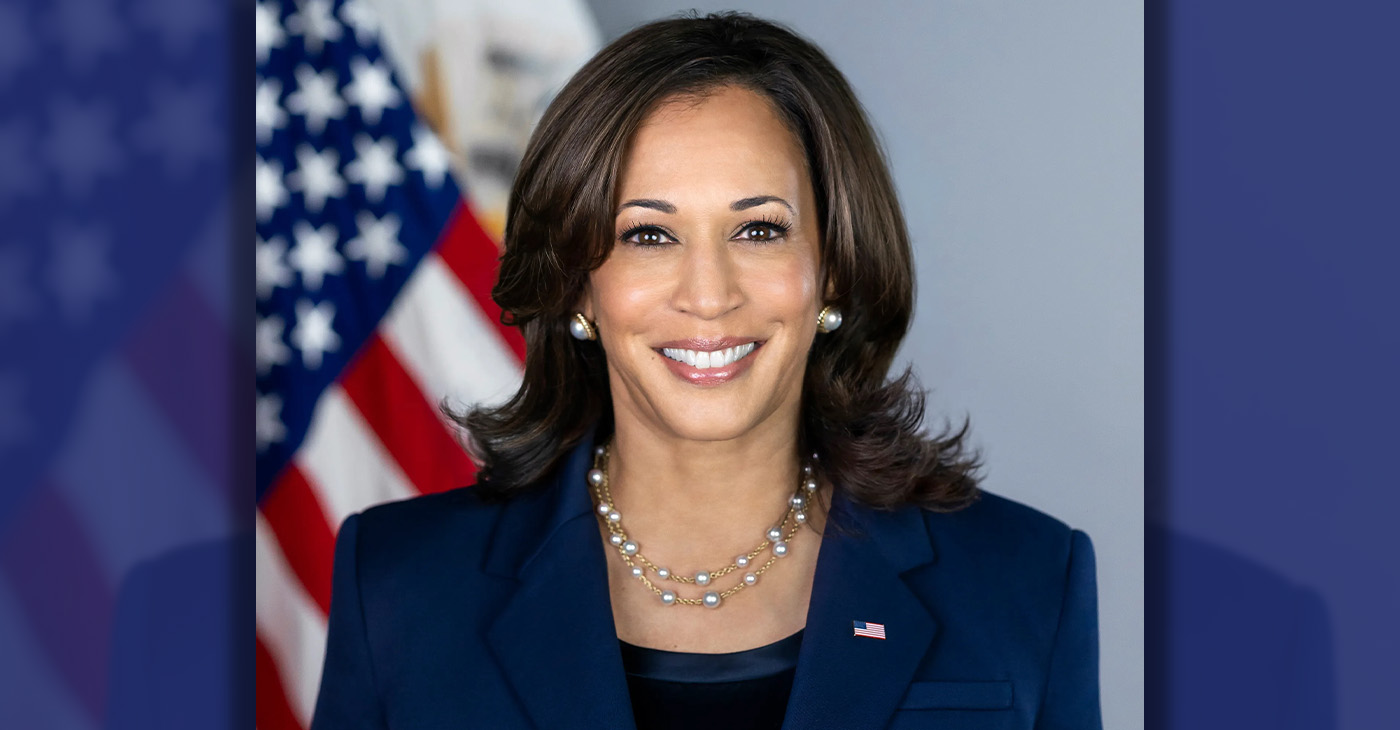Business
COMMENTARY: We did not die, we multiplied
CHICAGO CRUSADER — It is without question. Blacks, as a race of people, are the most resilient human beings walking on God’s earth.
By Harry C. Alford & Kay DeBow
It is without question. Blacks, as a race of people, are the most resilient human beings walking on God’s earth. Starting in the 1500s, Europeans began the greatest holocaust known to history.
The enslavement of Africans would last for over 350 years. A good portion of the captives died within weeks during the passage across the Atlantic Ocean. Many of the females arrived pregnant from the rapes of their captors during the voyage. But as a people, a noticeable number survived, only to be put under the harshest of conditions from the cradle to the grave.
There have been different forms of slavery throughout history. The form used throughout the “New World” was the most vicious and heartless. Victims were denied their religion, language and every aspect of their culture. The treatment was quite like that of the management of livestock. Any resistance would result in certain death. Governments would encourage settlers to utilize slaves on their farms. There was a tradition to award settlers for utilizing slaves. For each new slave purchased by a farmer there would be a fifty-acre bonus of new land.
After going through this holocaust for nearly four decades, African Americans of the western hemisphere developed into some of the strongest human beings known to the world. Every four years we go on display during the Olympics. Popular sports such as football, basketball, soccer, baseball, boxing, etc. prove our strength, speed and courage. Every person, regardless of race should visit the National Museum of African American History and Culture in DC. Blacks, descendants of slaves, come out of the museum inspired by the achievements despite the adversities we have experienced. Whites, descendants of slave owners, come out educated and surprised.
We won our freedom in the United States in 1865. However, for the next one hundred years many of us had to endure the evilness of Jim Crow segregation. We were slotted into the lowest jobs, poorest healthcare, smallest amount of education that could be.
Blacks living in the rural South were denied proper education. Most rural Black children went to elementary school during the winter months. The rest of the year was spent working the fields.
Harry’s parents grew up in Louisiana. They went to school up to the eighth grade. They would work as adults from there on, as the nearest Black high school was 40 miles away. When the Dutch descendants of South Africa wanted to apply apartheid, they modeled this Jim Crow example.
During the George W. Bush administration, we became Cultural Ambassadors. One of our journeys was to Mexico City. We were amazed when we toured La Puebla and Vera Cruz. There were Blacks there. Some did not know how their people got there. So, we did some research. When the French and British drove the Spanish settlers out of the Gulf Coast region, many of the Spaniards fled to Mexico and brought their slaves with them.
Amazed would be an understatement when we journeyed to Brazil in 1999. Brazil has the largest population of Blacks in the Western Hemisphere. In fact, only Nigeria has a greater population of Blacks.
Many Brazilians of European lineage try to ignore that fact.
They divide Blacks by the darkness of the skin color. Light skins are referred to as “mixed.” They are trying to dilute the fact that nearly most of the population are “children of Afri- ca.” Some of the brothers and sisters wear T-shirts that say “100% Negro” (Black in Portuguese). They aren’t buying the toned-down moniker.
Despite their slight majority population, Blacks in Brazil represent less than 18% of the wealth. Such is the same throughout South America. Blacks are at the bottom “rung” of the economic ladder. We are committed to help change that.
This March we will visit Columbia on a follow-up Trade Mission. Our affiliated chapter there is quite ambitious and is headquartered in the Cali region. This country is going through a positive change in terms of civil and economic rights for the African descendants and the indigenous (Indians) people.
It is our mantra to provide “Best Practices” in terms of civil and economic parity. Besides the Pacific Coastline we will meet dignitaries (the president and his cabinet) in the capital city of Bogota. See the details on the NBCC website.
The coast lines of South and Central America are home to the majority of African Americans. As slaves, they would work the harbors and ports in addition to the farmlands. The undeniable truth is that descendants of the “Great Holocaust” have survived and will now begin to economically thrive. It is our destiny. Our Lord is watching over us and will become our guiding light throughout this “journey.”
Mr. Alford is the Co-Founder, President/CEO of the National Black Chamber of Commerce®. Ms. DeBow is the Co-Founder, Executive Vice President of the NBCC. Website: www.nationalbcc.org Emails: halford@nationalbcc.org kdebow@nationalbcc.org.
This article originally appeared in the Chicago Crusader.
Activism
Oakland Post: Week of April 17 – 23, 2024
The printed Weekly Edition of the Oakland Post: Week of April 17 – 23, 2024

To enlarge your view of this issue, use the slider, magnifying glass icon or full page icon in the lower right corner of the browser window. ![]()
Business
V.P. Kamala Harris: Americans With Criminal Records Will Soon Be Eligible for SBA Loans
Speaking in Las Vegas on Jan. 27, Vice President Kamala Harris announced a forthcoming federal rule that will extend access to Small Business Administration (SBA) loans to Americans who have been convicted of felonies but have served their time. Small business owners typically apply for the SBA loans to start or sustain their businesses.

By California Black Media
Speaking in Las Vegas on Jan. 27, Vice President Kamala Harris announced a forthcoming federal rule that will extend access to Small Business Administration (SBA) loans to Americans who have been convicted of felonies but have served their time.
Small business owners typically apply for the SBA loans to start or sustain their businesses.
Harris thanked U.S. Rep. Steven Horsford (D-NV-04), the chair of the Congressional Black Caucus, for the work he has done in Washington to support small businesses and to invest in people.
“He and I spent some time this afternoon with business leaders and small business leaders here in Nevada. The work you have been doing to invest in community and to invest in the ambition and natural capacity of communities has been exceptional,” Harris said, speaking to a crowd of a few hundred people at the Brotherhood of Electrical Workers Hall in East Las Vegas.
On her daylong trip, Harris was joined by Horford, SBA Administrator Isabella Guzman, Interim Under Secretary of Commerce for Minority Business Development Agency (MBDA) Eric Morrissette, and Sen. Catherine Cortez Masto (D-Nev).
“Formerly incarcerated individuals face significant barriers to economic opportunity once they leave prison and return to the community, with an unemployment rate among the population of more than 27%,” the White House press release continued. “Today’s announcement builds on the Vice President’s work to increase access to capital. Research finds that entrepreneurship can reduce recidivism for unemployed formerly incarcerated individuals by as much as 30%.”
Business
G.O.P. Lawmakers: Repeal AB 5 and Resist Nationalization of “Disastrous” Contractor Law
Republican lawmakers gathered outside of the Employee Development Department in Sacramento on Jan. 23 to call for the repeal of AB5, the five-year old California law that reclassified gig workers and other independent contractors as W-2 employees under the state’s labor code.

By California Black Media
Republican lawmakers gathered outside of the Employee Development Department in Sacramento on Jan. 23 to call for the repeal of AB5, the five-year old California law that reclassified gig workers and other independent contractors as W-2 employees under the state’s labor code.
Organizers said they also held the rally to push back against current efforts in Washington to pass a similar federal law.
“We are here to talk about this very important issue – a battle we have fought for many years – to stop this disastrous AB 5 policy,” said Assembly Republican Leader James Gallagher (R-Yuba City).
Now, that threat has gone national as we have seen this new rule being pushed out of the Biden administration,” Gallagher continued.
On Jan. 10, the U.S. Department of Labor issued a new rule providing guidance on “on how to analyze who is an employee or independent contractor under the Fair Labor Standards Act (FLSA).”
“This final rule rescinds the Independent Contractor Status Under the Fair Labor Standards Act rule (2021 IC Rule), that was published on January 7, 2021, and replaces it with an analysis for determining employee or independent contractor status that is more consistent with the FLSA as interpreted by longstanding judicial precedent,” a Department of Labor statement reads.
U.S. Congressmember Kevin Kiley (R-CA-3), who is a former California Assemblymember, spoke at the rally.
“We are here today to warn against the nationalization of one of the worst laws that has ever been passed in California, which has devastated the livelihoods of folks in over 600 professions,” said Kiley, adding that the law has led to a 10.5% decline in self-employment in California.
Kiley blamed U.S Acting Secretary of Labor, July Su, who was the former secretary of the California Labor and Workforce Development Agency, for leading the effort to redefine “contract workers” at the federal level.
Kiley said two separate lawsuits have been filed against Su’s Rule – its constitutionality and the way it was enacted, respectively. He said he is also working on legislation in Congress that puts restrictions on the creation and implementation of executive branch decisions like Su’s.
Assemblymember Kate Sanchez (R-Rancho Santa Margarita) announced that she plans to introduce legislation to repeal AB 5 during the current legislative session.
“So many working moms like myself, who are also raising kids, managing households, were devastated by the effects of AB 5 because they lost access to hundreds of flexible professions,” Sanchez continued. “I’ve been told by many of these women that they have lost their livelihoods as bookkeepers, artists, family caregivers, designers, and hairstylists because of this destructive law.”
-

 Activism4 weeks ago
Activism4 weeks agoOakland Post: Week of March 20 – 26, 2024
-

 #NNPA BlackPress3 weeks ago
#NNPA BlackPress3 weeks agoCOMMENTARY: D.C. Crime Bill Fails to Address Root Causes of Violence and Incarceration
-

 #NNPA BlackPress3 weeks ago
#NNPA BlackPress3 weeks agoMayor, City Council President React to May 31 Closing of Birmingham-Southern College
-

 #NNPA BlackPress3 weeks ago
#NNPA BlackPress3 weeks agoCOMMENTARY: Lady Day and The Lights!
-

 #NNPA BlackPress3 weeks ago
#NNPA BlackPress3 weeks agoFrom Raids to Revelations: The Dark Turn in Sean ‘Diddy’ Combs’ Saga
-

 #NNPA BlackPress3 weeks ago
#NNPA BlackPress3 weeks agoBaltimore Key Bridge Catastrophe: A City’s Heartbreak and a Nation’s Alarm
-

 #NNPA BlackPress3 weeks ago
#NNPA BlackPress3 weeks agoBaltimore’s Key Bridge Struck by Ship, Collapses into Water
-

 Activism3 weeks ago
Activism3 weeks agoOakland Post: Week of March 27 – April 2, 2024

















































